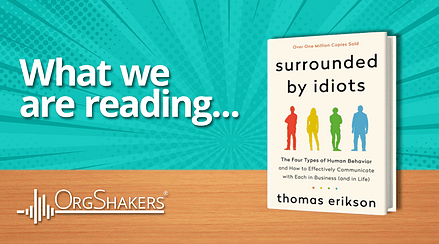Menu

Employer Brand vs Employer Value Proposition: Which is more important?
When it comes to attracting and retaining top talent, two terms dominate HR conversations: employer brand and employee value proposition (EVP).
While they are closely connected, they serve quite different purposes within an organization’s talent strategy.
Understanding the difference, and how they work together, is crucial for HR leaders looking to build a competitive and sustainable workforce.
So, what is an employer brand?
An employer brand is essentially how an organization is perceived by current employees, potential candidates, and even the wider marketplace. According to CIPD, it is “a set of attributes and qualities, often intangible, that makes an organization distinctive, promises a particular kind of employment experience, and appeals to those people who will thrive and perform best in its culture.”
Think of your employer brand as your company’s reputation as a workplace. It is shaped by:
- Your values and organizational culture
- HR policies and people practices
- Corporate social responsibility efforts
- How employees talk about their experiences internally and externally
A strong employer brand should align with the company’s corporate brand, reinforce ethical standards, and highlight what makes the organization stand out. Like customer marketing, it is about telling a compelling story that attracts the right talent and keeps employees engaged.
What is an Employee Value Proposition (EVP)?
An employee value proposition describes what an organization stands for, requires, and offers as an employer. It is the “deal” between employer and employee, covering expectations, beliefs, and obligations. In short, the EVP answers the question: Why should someone work here, and why should they stay?
Traditionally, organizations crafted one overarching EVP, but today many are moving toward segmentation. Just as customers are not a homogenous group, employees have diverse needs and priorities. For example:
- Younger employees may prioritize career development and flexibility.
- Mid-career professionals may value stability, benefits, and clear career progression.
- Caregivers may need tailored policies like flexible hours or family support.
Segmenting the EVP allows organizations to emphasize different benefits to different groups while maintaining consistency with the overall employer brand.
The global and organizational context
For multinational organizations, the challenge is whether to adopt a single employer brand and EVP worldwide or adjust messaging for different regions. Global values must often be interpreted locally to respect cultural differences and diverse market needs.
Similarly, during mergers or acquisitions, both employer brand and EVP may need review.
Employees often feel uncertain or disconnected after such transitions, so re-establishing the “deal” between employer and employee is critical for retention and trust.
Employer brand vs EVP: which matters most?
The truth is that neither stands alone. Your employer brand and EVP are two sides of the same coin.
- The employer brand is the external and internal reputation of your workplace.
- The EVP is the actual substance behind that reputation, detailing what employees can expect and what is expected of them in return.
Without a strong EVP, an employer brand becomes hollow marketing that employees will quickly see through. Without a compelling employer brand, even the best EVP will struggle to attract new talent or inspire pride in existing employees.
Both must be reviewed regularly to remain aligned with organizational goals, employee needs, and shifting market dynamics. HR leaders should treat them as interconnected strategies that together shape the employee experience and organizational success.
Our Final Thoughts
So, which is more important: employer brand or employee value proposition?
The answer is both.
An EVP provides the foundation of the employment experience, while the employer brand communicates that promise to the world.
HR professionals who build a consistent connection between the two will be best placed to attract talent, strengthen engagement, and retain top performers in today’s competitive labor market.
Interested in finding out how best to strengthen your EVP & Employer brand? Get in touch with orgshakers to find out more today.



